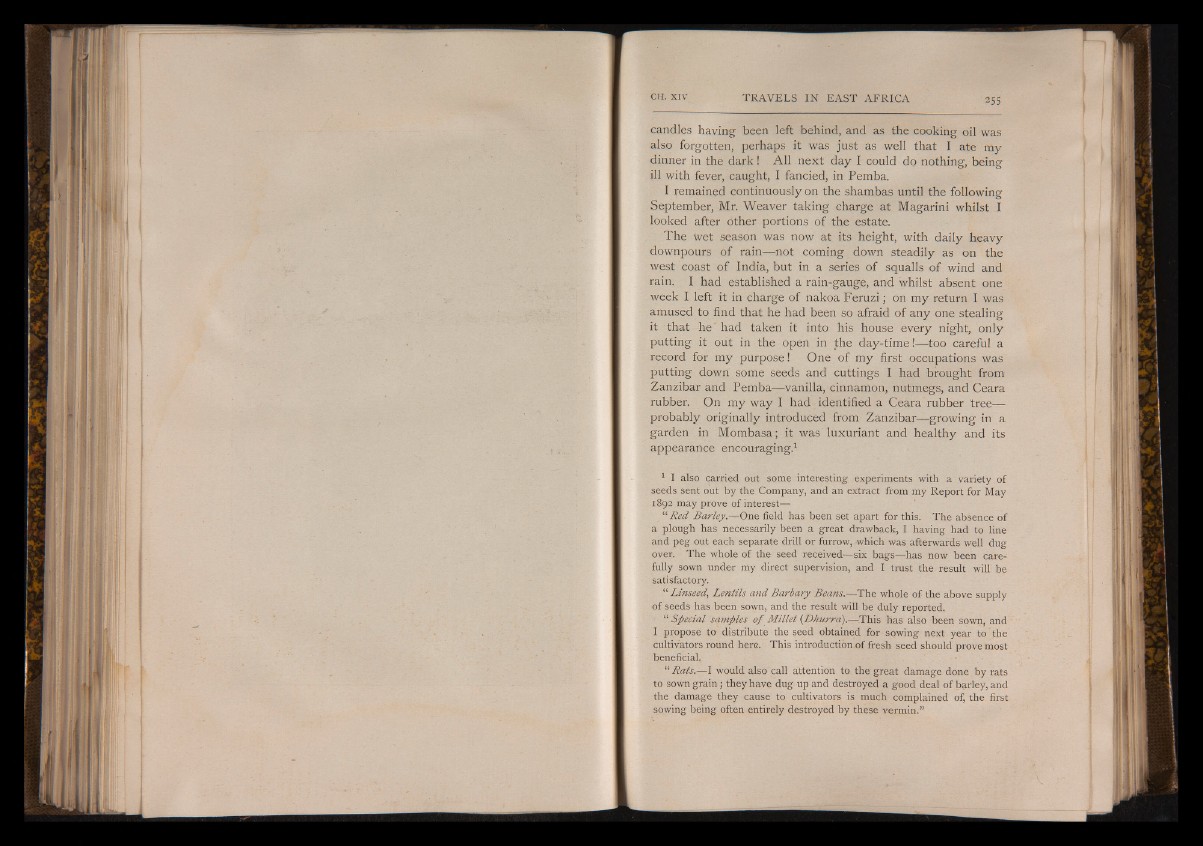
l i
candles having been left behind, and as the cooking oil was
also forgotten, perhaps it was just as well that I ate my
dinner in the dark! All next day I could do nothing, being
ill with fever, caught, I fancied, in Pemba.
I remained continuously on the shambas until the following
September, Mr. Weaver taking charge at Magarini whilst I
looked after other portions of the estate.
The wet season was now at its height, with daily heavy
downpours of rain— not coming down steadily as on the
west coast of India, but in a series of squalls of wind and
rain. I had established a rain-gauge, and whilst absent one
week I left it in charge of nakoa Feruzi; on my return I was
amused to find that he had been so afraid of any one stealing
it that -he' had taken it into his house every night, only
putting it out in the open in the day-time!— too careful a
record for my purpose! One of my first occupations was
putting down some seeds and cuttings I had brought from
Zanzibar and PembaSvanilla, cinnamon, nutmegs, and Ceara
rubber. On my way I had identified a Ceara rubber tree—
probably originally introduced from Zanzibar— growing in a
garden in Mombasa; it was luxuriant and healthy and its
appearance encouraging.1
I I also carried out some interesting experiments with a variety of
seeds sent out by the Company, and an extract from my Report for May
1892 may prove of interest—
II Red Barley.— One field has been set apart for this. The absence of
a plough has necessarily been a great drawback, I having had to line
and peg out each separate drill or furrow, which was afterwards well dug
over. The whole of the seed received— six bags—has now been carefully
sown under my direct supervision, and I trust the result will be
satisfactory.
“ Linseed, Lentils and Barbary Beans.— The whole of the above supply
of seeds has been sown, and the result will be duly reported.
“ Special samples o f M illet (Dhurra).— This has also been sown, and
I propose to distribute the seed obtained for sowing next year to the
cultivators round here. This introduction of fresh seed should prove most
beneficial.
“ Rats.— I would also call attention to the great damage done by rats
to sown grain; they have dug up and destroyed a good deal of barley, and
the damage they cause to cultivators is much complained of, the first
sowing being often entirely destroyed by these vermin.”